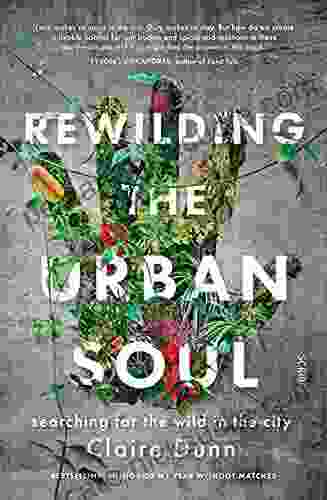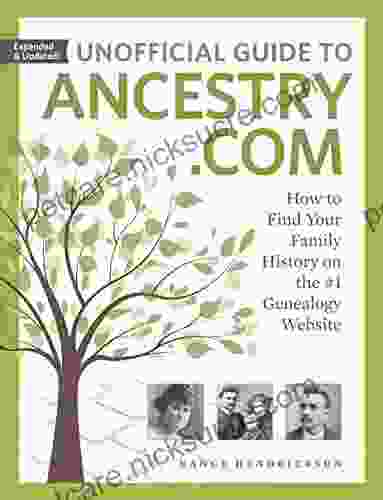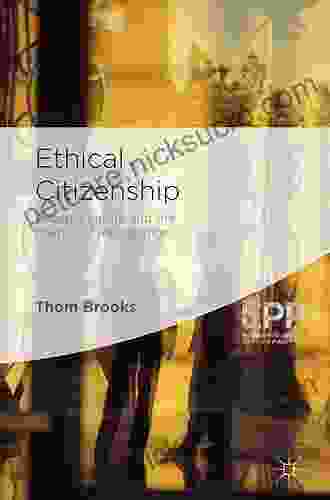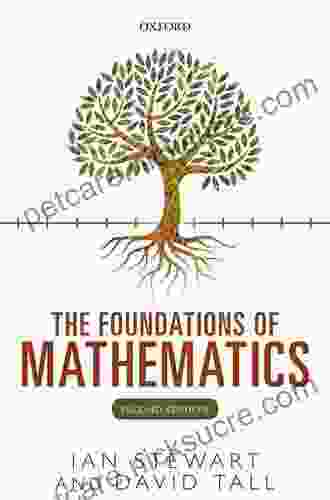British Idealism and the Politics of Recognition: Palgrave Studies in Ethics and

Abstract
British Idealism and the Politics of Recognition explores the political thought of British Idealists, focusing on their contributions to the development of the concept of recognition. The book argues that British Idealists developed a sophisticated and nuanced understanding of recognition that has been largely overlooked by contemporary political theorists. This understanding of recognition is based on the idea that human beings are essentially social creatures who need to be recognized by others in order to flourish. British Idealists argued that recognition is not simply a matter of being acknowledged by others, but also of being respected and valued. They also argued that recognition is not something that is simply given to us, but something that we must earn through our actions and interactions with others. The book concludes by arguing that British Idealism offers a valuable resource for contemporary political theorists who are interested in developing a more robust and inclusive conception of recognition.
4.6 out of 5
| Language | : | English |
| File size | : | 946 KB |
| Text-to-Speech | : | Enabled |
| Screen Reader | : | Supported |
| Enhanced typesetting | : | Enabled |
| Word Wise | : | Enabled |
| Print length | : | 261 pages |
The concept of recognition has become increasingly important in political theory in recent years. This is due in part to the rise of identity politics and the growing awareness of the importance of social justice. Recognition is essential for human flourishing, and it is a necessary condition for social justice. However, there is no consensus on what recognition is or how it is achieved. In this book, I argue that British Idealism offers a valuable resource for contemporary political theorists who are interested in developing a more robust and inclusive conception of recognition.
British Idealism and the Concept of Recognition
British Idealism is a philosophical movement that emerged in the late 19th century. British Idealists were influenced by German Idealism, but they developed their own unique approach to philosophy. British Idealists argued that the world is not simply a collection of independent objects, but is instead a unified whole. They also argued that the mind is not separate from the body, but is instead an essential part of reality. British Idealists believed that human beings are essentially social creatures who need to be recognized by others in order to flourish.
British Idealists developed a sophisticated and nuanced understanding of recognition. They argued that recognition is not simply a matter of being acknowledged by others, but also of being respected and valued. They also argued that recognition is not something that is simply given to us, but something that we must earn through our actions and interactions with others.
The Politics of Recognition
The politics of recognition is the study of how recognition is distributed in society. British Idealists argued that recognition is essential for social justice. They believed that all human beings are entitled to recognition, regardless of their race, gender, or social class. However, they also recognized that recognition is often unequally distributed in society. This can lead to social injustice and conflict.
British Idealists developed a number of different strategies for promoting recognition. These strategies included education, social reform, and political activism. They believed that it was important to challenge the social and political structures that perpetuate inequality and injustice. British Idealists also believed that it was important to create new opportunities for marginalized groups to participate in society.
British Idealism offers a valuable resource for contemporary political theorists who are interested in developing a more robust and inclusive conception of recognition. British Idealists developed a sophisticated and nuanced understanding of recognition that is based on the idea that human beings are essentially social creatures who need to be recognized by others in order to flourish. They also argued that recognition is not simply a matter of being acknowledged by others, but also of being respected and valued. British Idealists developed a number of different strategies for promoting recognition, including education, social reform, and political activism. These strategies offer a valuable resource for contemporary political theorists who are interested in developing more just and inclusive societies.
References
- Anderson, Benedict. Imagined Communities: Reflections on the Origin and Spread of Nationalism. Verso Books, 1983.
- Butler, Judith. Gender Trouble: Feminism and the Subversion of Identity. Routledge, 1990.
- Fraser, Nancy. Scales of Justice: Reimagining Political Space in a Globalizing World. Columbia University Press, 2009.
- Honneth, Axel. The Struggle for Recognition: The Moral Grammar of Social Conflicts. Polity Press, 1995.
- Taylor, Charles. The Ethics of Authenticity. Harvard University Press, 1991.
4.6 out of 5
| Language | : | English |
| File size | : | 946 KB |
| Text-to-Speech | : | Enabled |
| Screen Reader | : | Supported |
| Enhanced typesetting | : | Enabled |
| Word Wise | : | Enabled |
| Print length | : | 261 pages |
Do you want to contribute by writing guest posts on this blog?
Please contact us and send us a resume of previous articles that you have written.
 Fiction
Fiction Non Fiction
Non Fiction Romance
Romance Mystery
Mystery Thriller
Thriller SciFi
SciFi Fantasy
Fantasy Horror
Horror Biography
Biography Selfhelp
Selfhelp Business
Business History
History Classics
Classics Poetry
Poetry Childrens
Childrens Young Adult
Young Adult Educational
Educational Cooking
Cooking Travel
Travel Lifestyle
Lifestyle Spirituality
Spirituality Health
Health Fitness
Fitness Technology
Technology Science
Science Arts
Arts Crafts
Crafts DIY
DIY Gardening
Gardening Petcare
Petcare Lisa Marasco
Lisa Marasco Paul Annacone
Paul Annacone Andrew Solomon
Andrew Solomon Ronald York
Ronald York Rosemary Ellen Guiley
Rosemary Ellen Guiley Maia Motley
Maia Motley Natsuki Takaya
Natsuki Takaya Mike Lanza
Mike Lanza 1st Ed 2019 Edition Kindle Edition
1st Ed 2019 Edition Kindle Edition Julie K Briggs
Julie K Briggs Tom Chivers
Tom Chivers J F Tamayo
J F Tamayo Knowledge Tree
Knowledge Tree Arden Rose
Arden Rose Joyce L Vedral
Joyce L Vedral Duncan Hamilton
Duncan Hamilton Jody Morse
Jody Morse Robert Irwin
Robert Irwin Dr Mike Grevlos
Dr Mike Grevlos S K Gupta
S K Gupta Belinia Xenrale
Belinia Xenrale Egerton Ryerson Young
Egerton Ryerson Young Wendy Higgins
Wendy Higgins Alison Pray
Alison Pray Patricia G Lange
Patricia G Lange Ewan Mcgregor
Ewan Mcgregor Anton Angelov
Anton Angelov Samuel Owedyk
Samuel Owedyk Jacqueline Corricelli
Jacqueline Corricelli Jamie Whyte
Jamie Whyte Karen L Cox
Karen L Cox Stephen R Lawhead
Stephen R Lawhead Mildred Council
Mildred Council Pat Manley
Pat Manley Jeremy Bhandari
Jeremy Bhandari Susan Ludington Hoe
Susan Ludington Hoe Charles Fleming
Charles Fleming Jim Baggott
Jim Baggott Keith Bowden
Keith Bowden Janice K Ledford
Janice K Ledford Carol Matsuzaki
Carol Matsuzaki Ian Sample
Ian Sample Michael Borenstein
Michael Borenstein Deborah Spungen
Deborah Spungen Bruce Brown
Bruce Brown Peter Burns
Peter Burns Nicholas J Saunders
Nicholas J Saunders Tyler Lansford
Tyler Lansford Teddy Atlas
Teddy Atlas Mindfulness Hypnosis Academy
Mindfulness Hypnosis Academy Amanda Claridge
Amanda Claridge Spire Study System
Spire Study System Michael Ross
Michael Ross Megan Sloan
Megan Sloan Patricia B Mcconnell
Patricia B Mcconnell Morten H Christiansen
Morten H Christiansen Teri Tom
Teri Tom Dinah Bucholz
Dinah Bucholz Robert Clifton Robinson
Robert Clifton Robinson Lori Bregman
Lori Bregman Joshua G Shifrin
Joshua G Shifrin John T Cacioppo
John T Cacioppo Chris Parsons
Chris Parsons Kim Mack Rosenberg
Kim Mack Rosenberg Traci Chee
Traci Chee 1st Ed 2018 Edition Kindle Edition
1st Ed 2018 Edition Kindle Edition Dana Trentini
Dana Trentini Larry A Yff
Larry A Yff Jamil Zaki
Jamil Zaki Hesam Nemounehkhah
Hesam Nemounehkhah Leonard Sax
Leonard Sax M Susan Lindee
M Susan Lindee Janet Malcolm
Janet Malcolm Heather A Smith
Heather A Smith Jack Newfield
Jack Newfield Adeline Yen Mah
Adeline Yen Mah Aaron T Beck
Aaron T Beck Anthony Burgess
Anthony Burgess David Barrett
David Barrett Beryl Beare
Beryl Beare Phyllis Franklin
Phyllis Franklin Elizabeth Field
Elizabeth Field Joshua Darwin
Joshua Darwin Lars Anderson
Lars Anderson Lindsey Bliss
Lindsey Bliss Samantha Boardman
Samantha Boardman House Of Talent
House Of Talent Barry Ord Clarke
Barry Ord Clarke Brian Meier
Brian Meier Cal Peternell
Cal Peternell Lenora Chu
Lenora Chu Alexandre Paiva
Alexandre Paiva Alice Roberts
Alice Roberts Tamonya Sands
Tamonya Sands Mara Rutherford
Mara Rutherford Guy Harrison
Guy Harrison Rafael Nadal
Rafael Nadal John S Farnam
John S Farnam Timothy Dickeson
Timothy Dickeson Travis Senzaki
Travis Senzaki James Adams
James Adams Lech A Grzelak
Lech A Grzelak Suzy Hopkins
Suzy Hopkins Bill Douglas
Bill Douglas Bradmd
Bradmd Tillie Cole
Tillie Cole Dk Publishing
Dk Publishing Jon Young
Jon Young Jay Cassell
Jay Cassell Sara Saedi
Sara Saedi Jill Heinerth
Jill Heinerth Sarah A Reinhard
Sarah A Reinhard Christopher Hook
Christopher Hook Brent Warner
Brent Warner Ray Mcnulty
Ray Mcnulty Jacob Gardner
Jacob Gardner Lisa R Cohen
Lisa R Cohen Daniel H Pink
Daniel H Pink Nick Morrison
Nick Morrison Rebecca Solnit
Rebecca Solnit Orji Onyebuchi
Orji Onyebuchi Mae Ilami Onyekwum
Mae Ilami Onyekwum Kay Kennedy
Kay Kennedy Susan Alcorn
Susan Alcorn Ellie Marney
Ellie Marney 1st Ed 2020 Edition Kindle Edition
1st Ed 2020 Edition Kindle Edition Perre Coleman Magness
Perre Coleman Magness Michael T Mcdermott
Michael T Mcdermott Joanne Calderwood
Joanne Calderwood Ruth Ware
Ruth Ware Mark Santino
Mark Santino My Daily German
My Daily German Robert Milner
Robert Milner Roger Frampton
Roger Frampton Liz Thomas
Liz Thomas Raymond Arsenault
Raymond Arsenault Andy Kirkpatrick
Andy Kirkpatrick Nageshwar Sah
Nageshwar Sah S Elia
S Elia Geoff Johns
Geoff Johns Evelyn Raab
Evelyn Raab Franz Boas
Franz Boas Bud Hasert
Bud Hasert Marva Collins
Marva Collins Anthony Haynes
Anthony Haynes Nicole Zasowski
Nicole Zasowski Burt L Standish
Burt L Standish Tim Hollister
Tim Hollister Livy
Livy Matthew B Crawford
Matthew B Crawford Larry Kaniut
Larry Kaniut Nicole Libin Phd
Nicole Libin Phd Bob Chandler
Bob Chandler Richard E Nisbett
Richard E Nisbett James Ragonnet
James Ragonnet David Weber
David Weber Mike Bender
Mike Bender Chip Ingram
Chip Ingram Geoff Powter
Geoff Powter Irina Szmelskyj
Irina Szmelskyj Kajal Gupta
Kajal Gupta Jonathan Vaughters
Jonathan Vaughters Diane Vaughan
Diane Vaughan Randall M Packard
Randall M Packard Felicity Cloake
Felicity Cloake Denis Dwyer
Denis Dwyer Craig Clapper
Craig Clapper Ian Stewart
Ian Stewart Christopher Carter
Christopher Carter Fern Nichols
Fern Nichols Carmen Acevedo Butcher
Carmen Acevedo Butcher Skylar Kergil
Skylar Kergil David Roberts
David Roberts Ann Olga Koloski Ostrow
Ann Olga Koloski Ostrow Disha Experts
Disha Experts Mayim Bialik
Mayim Bialik Joachim Rossberg
Joachim Rossberg Felicia Pizzonia
Felicia Pizzonia T M Mikita
T M Mikita Dorthe Berntsen
Dorthe Berntsen Ejike Ifeanyichukwu
Ejike Ifeanyichukwu Florence Nightingale
Florence Nightingale William E Glassley
William E Glassley Glenda Green
Glenda Green Bob Allcorn
Bob Allcorn Pam Vredevelt
Pam Vredevelt Mark Lattanzi
Mark Lattanzi Stephen Bodio
Stephen Bodio James M Tabor
James M Tabor Robert Chu
Robert Chu Daniel Todd Gilbert
Daniel Todd Gilbert Taylor Fontenot
Taylor Fontenot 1st Edition Kindle Edition
1st Edition Kindle Edition Nick Redfern
Nick Redfern Adam Cesare
Adam Cesare Erin Miller
Erin Miller Diana Papaioannou
Diana Papaioannou Timothy R Pauketat
Timothy R Pauketat Rebekah Dodson
Rebekah Dodson Amanda Brooks
Amanda Brooks Keshia A Case
Keshia A Case Mike Chappell
Mike Chappell Jonathan Tarbox
Jonathan Tarbox Dierdre Wolownick Honnold
Dierdre Wolownick Honnold Kim Dwinell
Kim Dwinell Joan Ryan
Joan Ryan Dylan Dethier
Dylan Dethier Leonie Mack
Leonie Mack Peter Heller
Peter Heller Edward A Bell
Edward A Bell Alex Hibbert
Alex Hibbert Daisaku Ikeda
Daisaku Ikeda Ukay J Ekong
Ukay J Ekong Robert Oerter
Robert Oerter John Toussaint
John Toussaint Michael Clarke
Michael Clarke Broccoli Lion
Broccoli Lion Loudell F Snow
Loudell F Snow Phil Mickelson
Phil Mickelson Jandy Nelson
Jandy Nelson Robyn Perry Worthington
Robyn Perry Worthington Jane Yeadon
Jane Yeadon Karen Kovacs
Karen Kovacs Sharon Copeland
Sharon Copeland Daniel L Schacter
Daniel L Schacter Hafsah Faizal
Hafsah Faizal Michelle Damiani
Michelle Damiani Stephen C Meyer
Stephen C Meyer Katie Singer
Katie Singer Eric Sevareid
Eric Sevareid Carol Lynn Mckibben
Carol Lynn Mckibben Philip Moore
Philip Moore Brian Fagan
Brian Fagan 15th Edition Kindle Edition
15th Edition Kindle Edition Six Sisters Stuff
Six Sisters Stuff Rana Conway
Rana Conway Sara Snow
Sara Snow Kathy Farrokhzad
Kathy Farrokhzad Xiufeng Liu
Xiufeng Liu Jo Bartlett
Jo Bartlett Jay Carter
Jay Carter R J Vickers
R J Vickers Elizabeth Heavey
Elizabeth Heavey Joseph Mercola
Joseph Mercola Kara Goucher
Kara Goucher Pete Magill
Pete Magill Andrea Sfiligoi
Andrea Sfiligoi Leona S Aiken
Leona S Aiken Robert Lomas
Robert Lomas Sanjay Sarma
Sanjay Sarma Paul Johnson
Paul Johnson Laura Prepon
Laura Prepon Raven Morgaine
Raven Morgaine Stacey Steinberg
Stacey Steinberg Michael R Canfield
Michael R Canfield Didier Reiss
Didier Reiss Otto Toeplitz
Otto Toeplitz Chad Waterbury
Chad Waterbury Julie Angus
Julie Angus Ivana Bajic Hajdukovic
Ivana Bajic Hajdukovic George Grimm
George Grimm David Faulkner
David Faulkner Rachel Reed
Rachel Reed Arny Alberts
Arny Alberts Tim Deroche
Tim Deroche Evy Poumpouras
Evy Poumpouras Gerd Gigerenzer
Gerd Gigerenzer David Kahn
David Kahn Chris J Ellis
Chris J Ellis 1st Ed 2021 Edition Kindle Edition
1st Ed 2021 Edition Kindle Edition Sophie Kinsella
Sophie Kinsella Peter Lightbown
Peter Lightbown Philip Coppens
Philip Coppens Philippa Langley
Philippa Langley Nathan D Lang Raad
Nathan D Lang Raad Vikas Bhushan
Vikas Bhushan Andrea Olson
Andrea Olson Alan Agresti
Alan Agresti Maureen Dempsey
Maureen Dempsey Diane H Tracey
Diane H Tracey Erfun Geula
Erfun Geula Tadahiko Mizuno
Tadahiko Mizuno R K Agarwal
R K Agarwal Gerald Beaudry
Gerald Beaudry Lawrence T Friedhoff
Lawrence T Friedhoff John Vigor
John Vigor David Wolff
David Wolff Claire Dunn
Claire Dunn Derald Wing Sue
Derald Wing Sue Brent E Turvey
Brent E Turvey Shalini Shankar
Shalini Shankar Rachael Bell Irving
Rachael Bell Irving Peter Hessler
Peter Hessler Yaron Seidman
Yaron Seidman Michele Smith
Michele Smith Carola Hein
Carola Hein Pam Jarvis
Pam Jarvis Brad Myers
Brad Myers Kev Reynolds
Kev Reynolds Irene Spencer
Irene Spencer Sarah A Clark
Sarah A Clark Steve Crawford
Steve Crawford Jason Sumner
Jason Sumner Editions La Plume D Eros
Editions La Plume D Eros Laura Luther
Laura Luther Jacob Stegenga
Jacob Stegenga Lei Wang
Lei Wang Amita Jassi
Amita Jassi Sarah Thompson
Sarah Thompson Frank Wilczek
Frank Wilczek The Lodge Company
The Lodge Company Seth Tucker
Seth Tucker Hana Ali
Hana Ali Karina Manta
Karina Manta Doug Degrood
Doug Degrood Shane Jones
Shane Jones Shane Benzie
Shane Benzie Harry Fisch
Harry Fisch Latham Thomas
Latham Thomas Rollo Tomassi
Rollo Tomassi Intelligent
Intelligent James Proctor
James Proctor Sharon Wilkins
Sharon Wilkins David I Spivak
David I Spivak Ron Larson
Ron Larson Jerome Rand
Jerome Rand Bruce Chatwin
Bruce Chatwin Robyn Ryle
Robyn Ryle Wendy Sullivan
Wendy Sullivan 1st Ed 2017 Edition Kindle Edition
1st Ed 2017 Edition Kindle Edition Joshua James
Joshua James Ric Conrad
Ric Conrad Alexandra Kenin
Alexandra Kenin Clark A Campbell
Clark A Campbell Jamie Dorobek
Jamie Dorobek Norman Delgado
Norman Delgado Mambo Chita Tann
Mambo Chita Tann Paul Freedman
Paul Freedman Matthew Dworak
Matthew Dworak Mark Miller
Mark Miller Scott Matthews
Scott Matthews John Small
John Small Manjit Kumar
Manjit Kumar Michael Schiavone
Michael Schiavone Neil Sagebiel
Neil Sagebiel Francis L Macrina
Francis L Macrina Deborah T Goldberg
Deborah T Goldberg Kiley Reid
Kiley Reid Marisa Kanter
Marisa Kanter Ben Coates
Ben Coates Anne Polli
Anne Polli Paul A Laviolette
Paul A Laviolette Linda L French
Linda L French Nancy Hendrickson
Nancy Hendrickson Holly Hook
Holly Hook Mark Vee John
Mark Vee John Eryk Lewinson
Eryk Lewinson 6th Edition Kindle Edition
6th Edition Kindle Edition Botros Rizk
Botros Rizk Ashley Stanford
Ashley Stanford Piotr Naskrecki
Piotr Naskrecki Jacob Cohen
Jacob Cohen Desiree Trattles
Desiree Trattles Sean Fitz Gerald
Sean Fitz Gerald Lynne Tolley
Lynne Tolley David Clark
David Clark Mary Douglas
Mary Douglas Ashlee Kasten
Ashlee Kasten Vaclav Smil
Vaclav Smil Kyler Shumway
Kyler Shumway Launi Meili
Launi Meili Natalia Molina
Natalia Molina Graham Priest
Graham Priest Daniel Scott
Daniel Scott Monica Beyer
Monica Beyer Mark Seidenberg
Mark Seidenberg R I Chalmers
R I Chalmers Chris Stringer
Chris Stringer Gary Dierking
Gary Dierking Robin Hobb
Robin Hobb Louise Warneford
Louise Warneford Mike Barrett
Mike Barrett Emily Vikre
Emily Vikre Janet Godwin
Janet Godwin Ivor Horton
Ivor Horton Steve Garratt
Steve Garratt Andrew Evans
Andrew Evans Richard Pears
Richard Pears Alan Greenfield
Alan Greenfield 1st Ed 2016 Edition Kindle Edition
1st Ed 2016 Edition Kindle Edition Richard Hofstadter
Richard Hofstadter Robyn Hawkins
Robyn Hawkins Emily Chetkowski
Emily Chetkowski Tim Powers
Tim Powers Day Schildkret
Day Schildkret Dan Robson
Dan Robson Thomas Lickona
Thomas Lickona Jeanne Oliver
Jeanne Oliver Jeffrey S Saltz
Jeffrey S Saltz Michael Archer
Michael Archer Jareth Tempest
Jareth Tempest Ann Jackson
Ann Jackson Ali Psiuk
Ali Psiuk Jeremy Lent
Jeremy Lent Karyn Garvin
Karyn Garvin Amanda Kingloff
Amanda Kingloff Leslie Anthony
Leslie Anthony Judith Warner
Judith Warner Will Nett
Will Nett Larry Krieger
Larry Krieger Karl Rehn
Karl Rehn Os Guinness
Os Guinness Caroline Fidanza
Caroline Fidanza Elise Hennessy
Elise Hennessy Cathy Hester Seckman
Cathy Hester Seckman Adam Rutherford Phd
Adam Rutherford Phd Jean Yves Leloup
Jean Yves Leloup Matthew Harffy
Matthew Harffy Jacqueline Carey
Jacqueline Carey Aron Ralston
Aron Ralston Estelle Maskame
Estelle Maskame Lavinia Collins
Lavinia Collins Isa Herrera
Isa Herrera Guillermo Gonzalez
Guillermo Gonzalez Sally A Lipsky
Sally A Lipsky Lh Press
Lh Press Bilingual Edition Kindle Edition
Bilingual Edition Kindle Edition Edward Marston
Edward Marston Wolfgang Jank
Wolfgang Jank David Fine
David Fine Geraint Thomas
Geraint Thomas Gill Stewart
Gill Stewart Gary E Schwartz
Gary E Schwartz John L Havlin
John L Havlin Terry Pratchett
Terry Pratchett Derek Rowntree
Derek Rowntree Clifford E Trafzer
Clifford E Trafzer Nancy B Rapoport
Nancy B Rapoport Monte Burch
Monte Burch Lou Nanne
Lou Nanne Bill Rodgers
Bill Rodgers Lani Forbes
Lani Forbes H Lee Jones
H Lee Jones Grace Liu
Grace Liu Alison Gopnik
Alison Gopnik Darril Fosty
Darril Fosty Naomi Moriyama
Naomi Moriyama Sandra Uwiringiyimana
Sandra Uwiringiyimana Janice Hudson
Janice Hudson Modestus Anabaraonye
Modestus Anabaraonye Raichelle Carter
Raichelle Carter Taran Matharu
Taran Matharu Berkshire K Greene
Berkshire K Greene Christian Fader
Christian Fader Jean Pierre De Caussade
Jean Pierre De Caussade Alice Waters
Alice Waters Valerie Nash Chang
Valerie Nash Chang Harold Simmons
Harold Simmons Alan Naldrett
Alan Naldrett Asti Hustvedt
Asti Hustvedt George Mount
George Mount Wabun Wind
Wabun Wind Paul Haddad
Paul Haddad Christine E Sleeter
Christine E Sleeter Hannu Rajaniemi
Hannu Rajaniemi Robert Lanza
Robert Lanza Jeff Benedict
Jeff Benedict Helen Batten
Helen Batten Christa Mackinnon
Christa Mackinnon Elizabeth Becker
Elizabeth Becker Alexandra Witze
Alexandra Witze Helen Garabedian
Helen Garabedian Paul Gaskell
Paul Gaskell Christian Straube
Christian Straube Stanley Vast
Stanley Vast Kaoru Sinozaki
Kaoru Sinozaki Fletcher Dunn
Fletcher Dunn Kristen Thrasher
Kristen Thrasher Elaine Heney
Elaine Heney Cathy Raubenheimer
Cathy Raubenheimer Forrest Willett
Forrest Willett Sarah Lawton
Sarah Lawton D James Benton
D James Benton Russ Moorhouse
Russ Moorhouse Rick Barba
Rick Barba Saroo Brierley
Saroo Brierley M L Buchman
M L Buchman Charlotte Eliopoulos
Charlotte Eliopoulos Ben Rothenberg
Ben Rothenberg Webb Chiles
Webb Chiles Harvey Penick
Harvey Penick Julia Rutland
Julia Rutland Zachary Willey
Zachary Willey Gail Buckland
Gail Buckland Jesse M Ehrenfeld
Jesse M Ehrenfeld Bryn Huntpalmer
Bryn Huntpalmer Gary M Schultheis
Gary M Schultheis Kathleen Buckstaff
Kathleen Buckstaff
Light bulbAdvertise smarter! Our strategic ad space ensures maximum exposure. Reserve your spot today!
 Todd TurnerFollow ·18.1k
Todd TurnerFollow ·18.1k Dan BrownFollow ·5.5k
Dan BrownFollow ·5.5k Jonathan FranzenFollow ·3.1k
Jonathan FranzenFollow ·3.1k Albert CamusFollow ·13.5k
Albert CamusFollow ·13.5k Victor TurnerFollow ·11.4k
Victor TurnerFollow ·11.4k Art MitchellFollow ·3.2k
Art MitchellFollow ·3.2k Gabriel MistralFollow ·9.3k
Gabriel MistralFollow ·9.3k Ryūnosuke AkutagawaFollow ·18.6k
Ryūnosuke AkutagawaFollow ·18.6k

 Marcus Bell
Marcus BellThe Essential Guide to Angler Quick Reference: Your...
Embark on an unforgettable...

 Juan Butler
Juan ButlerThe Lupatus Stone: A Wicked Conjuring
The Lupatus Stone is a...

 Alvin Bell
Alvin BellUnveiling the Enchanting Memoirs of Lady Hyegyong: A...
In the annals of Korean...

 DeShawn Powell
DeShawn PowellAMC's Best Day Hikes in the Berkshires: Explore Majestic...
The Berkshires, a...

 Clark Campbell
Clark CampbellRewilding The Urban Soul: Reconnecting with Nature in the...
In the heart of sprawling metropolises, where...

 Cruz Simmons
Cruz SimmonsHow to Find Your Family History on a Genealogy Website: A...
Delving into the...
4.6 out of 5
| Language | : | English |
| File size | : | 946 KB |
| Text-to-Speech | : | Enabled |
| Screen Reader | : | Supported |
| Enhanced typesetting | : | Enabled |
| Word Wise | : | Enabled |
| Print length | : | 261 pages |












